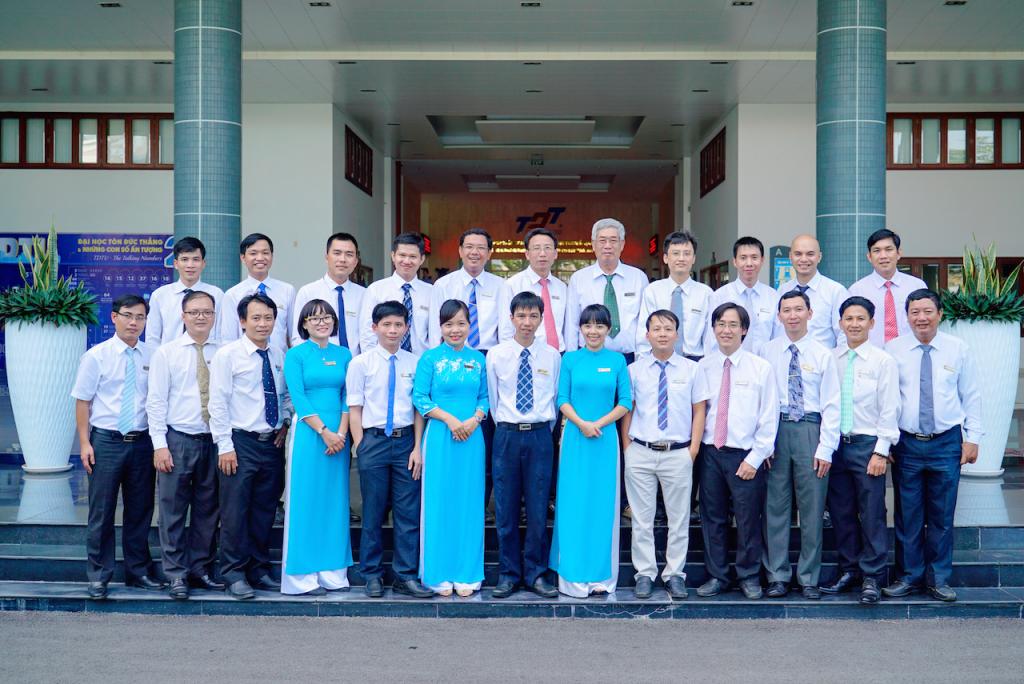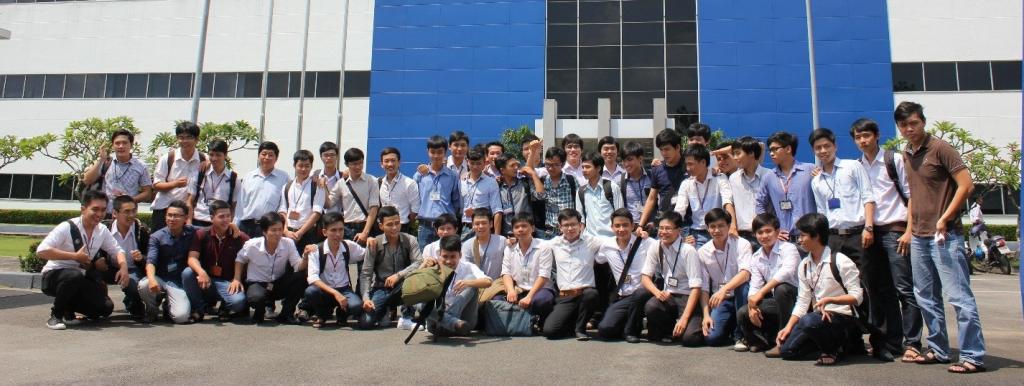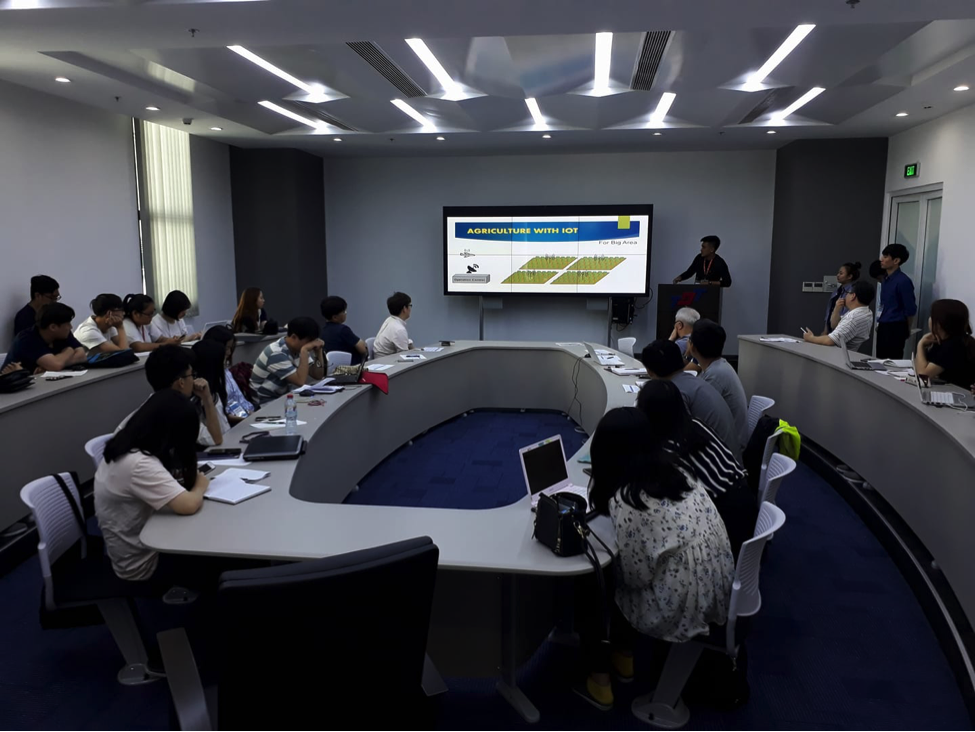Electrical and electronics engineering is in the TOP 10 of the most recruited job in the world, which is related to the most developed technologies in modern life, such as renewable energy, microelectronics design, automatic control, and wireless communications. This is the area that the students are going to study at the Faculty of Electrical and Electronics Engineering (FEEE) in Ton Duc Thang University. To ensure that the students are provided with highest quality of education as possible, FEEE has been continuously developed since it was established in 1997.
1. Development and position
At the first days, the Faculty had only one undergraduate program. To date, FEEE has developed many different programs from college to undergraduate, Master and PhD. There are also some joint programs with high-rank university in Netherlands and Czech Republic.
Currently, FEEE of TDTU is ranked 292 (by USNews 2022 Best Global Universties by subjects), ranked 301-400 (by Shanghai Ranking 2022), ranked 351-400 (by QS WUR by Subject 2022) among the world universities that offer training in the field of Electrical and Electronic Engineering.
In parallel with the development of educational programs, the Faculty has been focusing on improvement the quality of the teaching staff. From 3 PhD at the first days, the faculty staff has now 33 PhD graduated from developed countries such as USA, England, France, Germany, Russia, Korea, etc. There are also many professors from England, Czech Republic, Korea and Taiwan becoming the Adjunct professors of FEEE.

The number and quality of enrolled students has continuously improved every year. From 2015, the faculty began to accept students from Laos. There are also many international students from Netherlands chosen FEEE for their exchange programs and the faculty is hoping to attract more international students in the near future.
The faculty facility has been equipped with modern equipment and softwares from world-class corporations like Siemens, Mitsubishi, ABB, Endress+Hauser, Keysight Technologies, etc., which are always updated and improve to catch up the development of technologies. After being practice with these equipment and software, the FEEE students are confident to adapt well to the industrial environment after graduation.
2. Educational methods and management
At the beginning, due to the shortage of the teaching staff, the faculty had a lot of difficulties in educational management. To date, with the effort of the head of the faculty and the staff, FEEE has continuously improved his educational systems. FEEE can now self-control in the academic credit system.
3. Research
Scientific research is the most developed area of FEEE. In 2009, FEEE became the first Faculty of TDTU that can organize an international conference, which attracted a lot of scientists and professors from Vietnam and around the world. In 2013, FEEE successfully hold the International Conference on Advanced Engineering – Theory and Practice (AETA), and since then, this conference has been organized at least once per year. This conference is the first international conference organized by a Vietnamese university that has its proceedings printed in the series Lecture Notes in Electrical Engineering, published by Springer. The proceedings is indexed in the Web of Science and Scopus database. Up to now, this conference has been organized 7 times and attract many prestigious scholars and scientists to participate in.
FEEE has quickly adapted to the development trend of the universities and has contributed many international scientific publications in general and ISI indexed publications in specific, among them there are some publications in the TOP 5 of SCIE journal with highest performance metric in the corresponding narrow field. FEEE is also the first Faculty of TDTU who can obtain the USPTO patent, among the total of 2 USPTO patents of FEEE.
4. Student achievements and co-operation with industrial partners
Faculty of Electrical and Electronics Engineering (FEEE) has a strong partnership with many huge technology corporations, such as Viettel, Vietnam Electricity – Southern Power Corporation (EVN SPC), Vietnam Electricity – Ho Chi Minh City (EVN HCMC), ABB Vietnam, Siemens, Endress+Hausser, etc. Hence, the electrical and electronics engineers who graduate from TDTU are currently the priorities for job recruiting from big companies in the country. FEEE has also been chosen by the EVN SPC as the sole education organization to provide the Bachelor program for the staff of EVN SPC, who are currently the managers at intermediate level in the local branches of EVN SPC in 21 provinces from Ca Mau province to Ninh Thuan province. FEEE has collaborated with EVN HCMC and Vietnam Eco - Solutions to set up the on-grid high-power solar energy systems at TDTU, which is the first similar system in any universities located in Ho Chi Minh City.

5. International co-operation
Regarding to the international collaboration, in 2007, FEEE became one of two faculties of TDTU that have cooperation with international partner (Saxion Universities of Applied Sciences, Netherlands) in joint education program. Since then, there have been many cooperation activities with famous universities in the world, including joint training program, research collaboration, conference co-organization, laboratory sharing, student and faculty exchange, etc.
With the above achievements, FEEE are trying to accompany with the common development of TDTU so that in 2037, FEEE will be in the TOP 100 of world universities in the field of Electrical and Electronic Engineering.

"International Winter School" program in cooperation with Pukyong National University (Korea)



